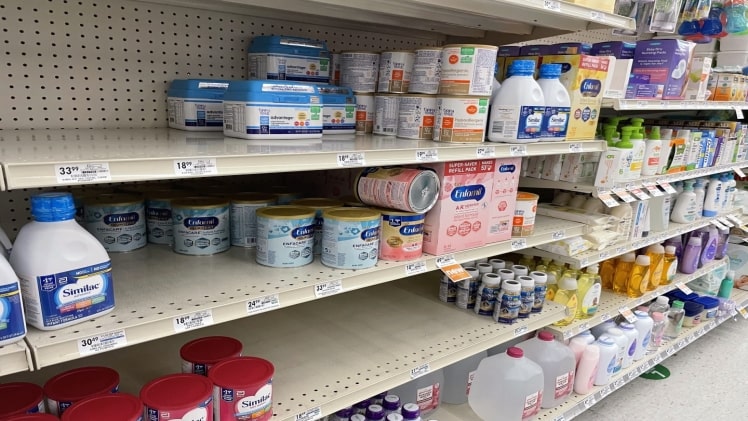There are several benefits of buying baby formula from a retail store instead of a pharmacy. The convenience, price, and health risks are just a few of them. But is it worth the convenience and cost? Let’s take a look. If you are still undecided, check out these tips to help you make a decision. They might surprise you. Read on to learn about these benefits and more. In the end, you will be glad you made the decision to buy your baby’s formula from a retail store instead of a pharmacy.
Costs
Comparison shopping is an excellent way to find the best prices on baby formula. Whether you buy in bulk or in single boxes, the costs are generally comparable. It can be tempting to buy a full can of formula, but you won’t be able to return it and resell it. If you plan to buy baby formula in bulk, you should buy a single box first. This way, you won’t have to pay hundreds of dollars for a whole can of formula and you’ll be less likely to be stuck with it.
Many stores carry store brands that are cheaper than name-brand formula, and you can buy generic varieties for as little as $2 per two-ounce container. More expensive brands offer special formulas that combat reflux, are non-GMO, or are designed for babies with specific nutritional needs. You can visit Organic’s Best to buy organic baby food.
Health risks
The FDA has established standards for infant formula. The ingredients are the same as in human breast milk. When formula is mixed in a store, it must meet these standards or risk contamination. Furthermore, if the ingredients are too rich in one ingredient or too low in another, it can stress an infant’s kidneys. Therefore, using homemade formula is dangerous for your child’s health. A.A.P., the Centers for Disease Control and Prevention, and the Food and Drug Administration recommend that parents not mix homemade formula at home.
Many baby formulas contain cow’s milk. Using this milk can increase the risk of necrotizing enter colitis, a potentially fatal condition for premature infants. This condition affects one in every 1,000 babies under the age of two. However, milk allergy is one of the most common childhood illnesses. Moreover, cow’s milk is highly toxic, and formula made from it may be contaminated with chemicals or lead to dehydration.
Convenience
For many families, convenience stores and community shops play an important role in supporting local communities. In recent years, the coronavirus outbreak has made these stores’ mission to serve local shoppers more important than ever. Whether you’re shopping for a new baby or looking for a safe, natural alternative, convenience shops and community supermarkets should always have a well-stocked baby care section with nutrition at the forefront of their mission.
In fact, the number of shoppers for infant formula has increased significantly in recent years. In fact, nearly half of consumers have switched brands, though many are still concerned about price. For that reason, 22 percent of buyers will only switch brands if the price is similar. A third option is supplementation. And while nearly 10% of buyers will transition their child out of formula altogether, the vast majority are looking for a convenient way to buy the required nutrition.
Price
Parents are reporting an increase in the price of baby formula and a nationwide shortage, which has led to the Attorney General of New York, Letitia James, issuing cease-and-desist letters to retailers who are overcharging. Price gouging is prohibited under New York’s price gouging statute, which prohibits retailers from charging more than their competitors during a time of shortage. In response to the widespread complaints, the Attorney General sent cease-and-desist letters to 30 retailers and warned them of the legal consequences of price-gouging.
The attorney general’s office of South Carolina advises that parents avoid buying baby formula from unreliable sources and to use credit cards whenever possible. Although price gouging laws vary by state, most encourage residents to be cautious and purchase the formula from reputable merchants. Consumers can also protect themselves by doing research on websites and reading reviews about unfamiliar companies. Look for words such as “scam” or “complaint,” or be suspicious if only one or two people have left positive reviews.

